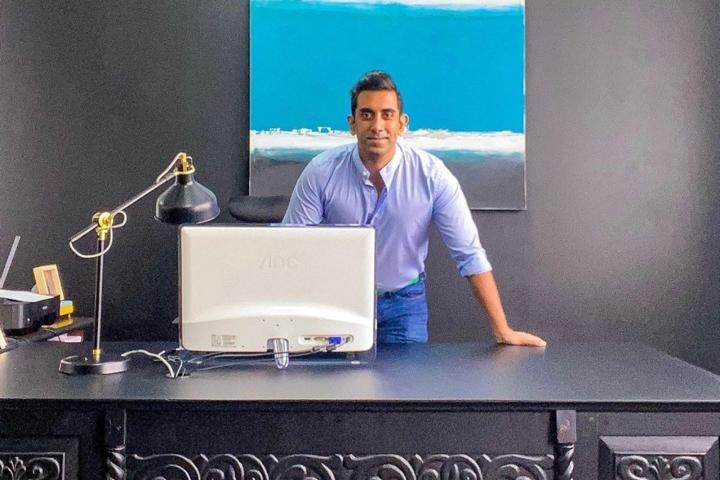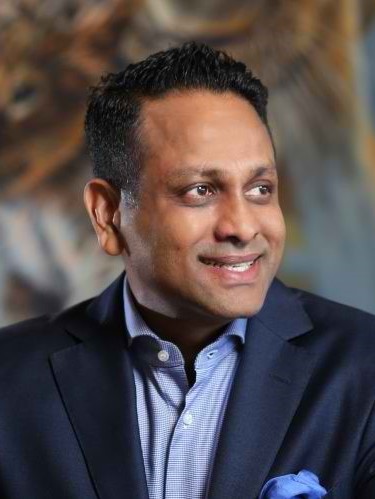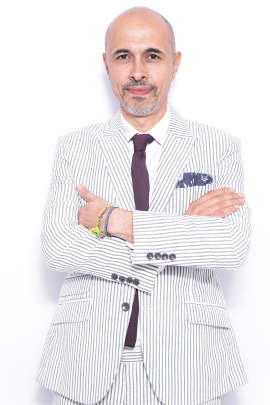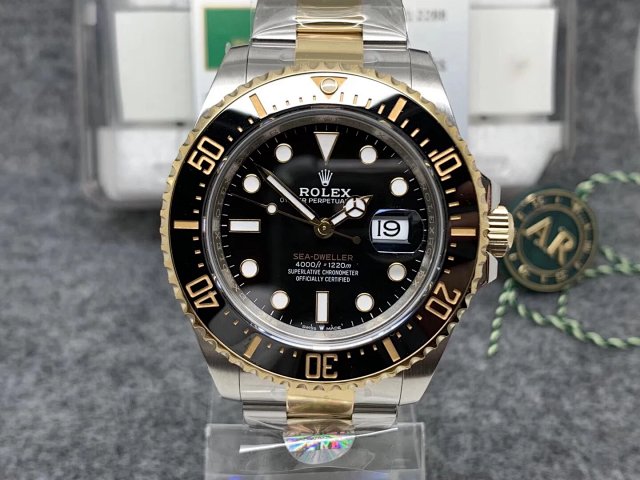Entrepreneur Interview
SPA CEYLON – The Brand That Said Ayurveda Can Be a Luxury
In our chat with Shalin Balasuriya, the cofounder of the brand, he takes us through the journey of how Spa Ceylon received global recognition for being what it is today: a luxury brand that not only dominated the industry by capitalizing on Sri Lanka’s Ayurvedic-rich history and culture – but also succeeding in selling their products as high-end at a time when Ayurveda was still considered inferior.

Ayurveda is one of the world’s most ancient healing techniques. For so long, it has been associated with the notion of being lesser than the modern medicine served by big pharmaceutical companies. So how exactly did Spa Ceylon break down those barriers and flourish not just locally, but internationally as well?
Originality in Identity:
From the get-go, there had to be a special factor that distinguished Spa Ceylon from other brands in the industry – that too, on an international scale.
After all, nothing says unique the way an authentic identity does.
“If we were an international cosmetic brand,” Shalin explains, “and we showed up in Europe, looking like a European brand, using European ingredients, it wouldn’t have meant anything.” The team at Spa Ceylon knew that the success of their brand depended heavily on uniqueness and authenticity, so they stayed true to that.

“We had all that in Sri Lanka,” he goes on. “We just needed to take it, put it together, and showcase it. That’s what we [still] do and we’re quite proud of it as well.”
Behind The Name:
Nothing provides an identity the way a name does. In fact, name and identity go hand in hand. When asked where Spa Ceylon got its name from, Shalin responds, “We wanted to give it an identity of its heritage or its home. Hence we wanted to give it a country identity. Unfortunately, every connotation of Sri Lanka was fairly negative at that point […] but when we started looking at Ceylon, all the best things that came from Sri Lanka was still called Ceylon.”
During this period began a revolution within the industry, where consumers were demanding to know more about the authenticity of herbal products, and were questioning every ingredient that went into them.
Shalin points out how the brand instantly recognised the consumers’ need for natural alternatives while still harbouring a desire for luxury.
That is how the term ‘Spa’ found itself into the brand name. “[It] gave that feeling of relaxation, pampering, luxury, all that. So bringing those together told people what the brand was all about in one go.”
Tapping into Sri Lanka’s Ayurvedic History:
Based in and originating from a country that has deep roots in this branch of medicinal science is undoubtedly one of the key factors that makes Spa Ceylon the successful wellness brand it is today. “There’s a team constantly looking at Ayurveda scripts, old formulations, all that. Looking at how we can use that formulations, ingredients in a way that it would match up to a modern consumer… [Sometimes] certain ingredients get big or the world suddenly wakes up to big ingredients […] so when something like that happens, we’ve got a wealth of information on these ingredients. We’ve been using these ingredients in our country for thousands of years. That’s essentially what we do. It’s about matching our consumer needs with the wealth of knowledge we have and then bridging that gap in terms of functionality by bringing the cosmetologist in.”

Given that Ayurveda is tied to ancient culture, one of the brand’s biggest challenges is deciding how it can fulfil a modern consumer need. When asked about what other challenges Spa Ceylon faces, despite being located in an Ayurvedic-rich country, Shalin says:
“To make Ayurveda accessible or relatable to a modern consumer, we had to make the delivery better.” He tells us about striving to make Ayurveda ‘desirable’ – of how the team had to navigate through ways to retain the authenticity that comes with Ayurveda while making it appealing to the public. “So essentially what we have are Ayurveda doctors and cosmetologists working together. On all those sensory fronts, touch-feel-smell, we get to that delivery point which is as good as any international cosmetic, but with the goodness of Ayurveda.”
Before taking the brand to an international scale, they had to first make it work in Sri Lanka. While it was no easy feat to get the locals to try an Ayurveda product – which, in Shalin’s words, was considered “a poor man’s medicine” – Spa Ceylon eventually succeeded in their mission.
Shalin testifies to four factors included in the brand that has made this possible:
“Number one is the science of Ayurveda, which is five thousand years of history deep-rooted into the culture of the island itself. The other [is] the ingredients. I mean, we’ve got such a beautiful tropical country; the herbs, the spices, the fruits, the flowers, those become our ingredients. The next one is our culture; the vibrant colours, the designs, the royal motifs, all that. [Lastly] is the warmth of the Sri Lankan people. It’s renown that anyone who comes to Sri Lanka talks about the Sri Lankan smile, how warm and hospitable we are. So we wanted wall those elements captured in the brand.”
Multisensory Engagement — the Key Ingredient to Successful Marketing:
“People always tell you what they feel,” Shalin says, “so that’s what we set out to do. We set out to make people feel something.”
There is a saying by Maya Angelou about how people tend to forget someone’s words and actions, but never the way they were made to feel – Spa Ceylon has taken those words and implemented the concept in every way possible.

When they launched their brand a little more than a decade ago, Spa Ceylon didn’t have the benefit of promoting themselves across multiple social media platforms the way businesses do now. They had to make the best of their circumstances and put themselves out there – engaging with their potential consumer-base on all fronts.
“We honed in on our audience and we followed them. We started looking at their lifestyle, and [decided to] get in their [sights] everywhere they do what they like to do. Whether it was fashion, music, [or] shopping.” They didn’t only launch their own stores, but also sold in stores they knew their target audience would be going to. “So we were selling in places like Paradise road that had never saw cosmetics before,” Shalin adds, before mentioning Odel and Barefoot as well.
They kept pushing forward, participating in events like Colombo Fashion Week, and then eventually sampling their products, depicting them as very lifestyle-oriented, all of which cemented people’s connection with the brand. “From the music, from the colours, from the aromas – all that coming together, it’s a multisensory experience. So how memory works is, if you engage more senses, your power of recollection is more. So that’s what we try to do with people, engage as many senses as possible when they’re interacting with the brand so that it becomes something memorable, and it’s worked.”
Being a very interactive brand, the ongoing pandemic should have posed as a huge threat to their style of consumer engagement.
Spa Ceylon only rose above it. Whether it was using imagery of ice to deliver a product’s ability to make someone feel chilled and refreshed, or using words to describe with immaculate detail the texture of a product on one’s skin, they found a way to deliver a multisensory experience even through a screen. “Even the way we photographed products changed,” Shalin tells us. “So creating those sensory feels through imagery even though it was two-dimensional, using their memories to create that feel through different ways of using media, is what we did.”
Breaking Barriers – Defying Fragile Masculinity:
While convincing people that Ayurveda can be a luxury was a challenge, it isn’t the only social misconception they’ve had to fight against. Despite it being 2021, there still exists an idea that skincare isn’t typically ‘macho’ and somehow belittles a man’s masculinity.
“See, I think cosmetics as a whole is still predominantly female driven but if you look at cosmetics and fashion both [and] what’s happening in the last 10 years, there’s a huge shift of men also looking to take care of themselves.” Shalin sheds light on how men have regularly used their female partner’s or female family member’s products, but with social media taking charge now, more men are talking about it and are expressing their care towards how they look and dress. “There are so many guys going to gyms and working out, so if you can take care of your body, why not glow up your face and your skin?”
“They do want answers to their skincare issues,” Shalin adds. “To a certain extent, skincare is unisex.” He goes on, “Men are evolving, and it’s good to see, and that’s something cosmetic brands are working on across the world. I myself have recently started talking about it; I [want to] talk about it a lot more and get this conversation going.”
Tips & Takeaways:
Shalin stresses on being agile, and having a deep understanding of both your consumers and your resources.
“From your consumer side, you really don’t have much choice. You just need to understand them, follow them, and then figure out how you take your resources and best match their needs.” However, he lets us know that when it comes to managing resources, there’s a lot more flexibility. “You can add people, add technology, change your knowledge base, all that.”
He also adds that having exemplary management techniques and scientific approaches only take a brand to a certain point, leaving us with this key piece of advice:
“But at the end of the day, your final interaction is with a human being. If you understand how that human being functions, then you better understand how to have an impact on that human’s life. Anything that doesn’t have an impact on that person’s life is not going to make him stop and watch or spend time on your brand… It’s like any relationship, really. If you don’t understand the person you’re having a relationship with, it’s not going to work.”
















